Tabletop Games: Welcome To The Revolution
by Chris
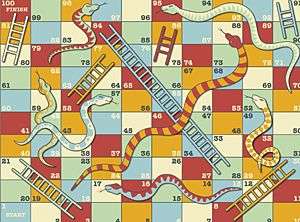 Here at GamingLives we like to keep an eye on current trends and popular movements in the gaming scene (well, a very lazy eye, at least). We like to think we can generally predict when the next ‘big thing’ is going to happen and, on some occasions, we’ve influenced the major changes that appear to be happening almost by chance. For example, we left Miyamoto in a cave as a child to discover The Legend of Zelda (he was mauled by a rogue Pikmin – totally not our fault), we hinted to Sony that perhaps people wanted a console that could play games and films (and nearly sold them our old Dreamcast superglued to a portable DVD player), and we told Microsoft that people like motion controls… yeah, that kinda backfired on us.
Here at GamingLives we like to keep an eye on current trends and popular movements in the gaming scene (well, a very lazy eye, at least). We like to think we can generally predict when the next ‘big thing’ is going to happen and, on some occasions, we’ve influenced the major changes that appear to be happening almost by chance. For example, we left Miyamoto in a cave as a child to discover The Legend of Zelda (he was mauled by a rogue Pikmin – totally not our fault), we hinted to Sony that perhaps people wanted a console that could play games and films (and nearly sold them our old Dreamcast superglued to a portable DVD player), and we told Microsoft that people like motion controls… yeah, that kinda backfired on us.
What we (and by we, I of course mean me) didn’t expect was this sudden surge in popularity from tabletop games. For anyone scratching their head as to what the hell a ‘tabletop’ game is, this is the name given to what we know as board games, but without invoking repressed memories of playing Boggle with your Nan. Now, immediately I can hear people going “Hang on Chris, you gorgeous man, are you telling us that everyone is playing Snakes and Ladders instead of proper videogames like real men and women do?” Well, random internet cretin, to an extent, yes I am. I’m certainly no expert on the subject but I’ve drawn up a few ideas as to why tabletop games are going through a rise in appreciation and acknowledgement.
We’ll get the most boring reason out the way first: the world, for quite some time, has been going through a recession of sorts. I’m the last person to ask about the world economy and politics but I can understand that things haven’t been super lately. Due to this lack of disposable income for the average person, certain luxuries had to be dropped and I can almost guarantee that, for gamers, one of those luxuries was spending forty pounds on a new release each week, especially those who burn through new releases in a week or two and then trade them back in for half the price. It isn’t the smartest of investments unless you’re a big fan of a particular series, or you know you’ll be getting hundreds of hours worth of gameplay out if it.
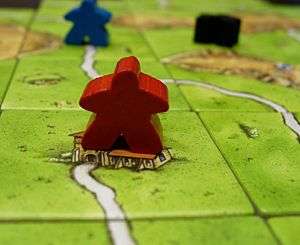 Tabletop games, on the other hand, tend to be a little cheaper, although not massively so. You can look to drop anything between ten to seventy pounds on some of them, but the beauty of this is that, depending on the purchase, it provides a near limitless amount of entertainment. You can replay them as much as you like and, thanks to a new wave of these games, they are different on virtually every playthrough, even if the core game remains unchanged. If we look at the price element further, you have to pay for the board game and that is literally it. Find somewhere to play and get going. No internet, no subscription, no microtransactions, no needing to log into some half-baked service in order to play. You have purchased your product and you can now play it. Remember when videogames used to be that simple?
Tabletop games, on the other hand, tend to be a little cheaper, although not massively so. You can look to drop anything between ten to seventy pounds on some of them, but the beauty of this is that, depending on the purchase, it provides a near limitless amount of entertainment. You can replay them as much as you like and, thanks to a new wave of these games, they are different on virtually every playthrough, even if the core game remains unchanged. If we look at the price element further, you have to pay for the board game and that is literally it. Find somewhere to play and get going. No internet, no subscription, no microtransactions, no needing to log into some half-baked service in order to play. You have purchased your product and you can now play it. Remember when videogames used to be that simple?
Another reason for their soaring popularity is the social element. I started getting heavily into tabletop games about two years ago, and since then I’ve not only got my friends and family involved but have also enjoyed more social outings and met new people. I was first introduced to them via work colleagues, who have quickly racked up an impressive array of games. They aren’t all elitist, Dungeons and Dragons, dice-rolling nerds; they’ve got games ranging from simple card games, such as Cards Against Humanity and Skull and Roses, to six hour long tactical behemoths, such as Game of Thrones. Through them, I’ve experienced a bevy of different games and, in turn, showed them to my friends, who now include board game nights as a regular part of a friendship that has spanned some fifteen years. Compared to videogaming, there is of course scope to meet more people online, even through the social media element that’s crowbarred into gaming. However, taking the two pastimes and comparing their common social elements gives very different results.
The first time I logged onto Battlefield 4, I was witness to the usual problems that blight modern gaming: swearing, insults, racism, homophobic taunts, all inside a game that was buggy and unfinished. The only thing that kept me there for those first couple of weeks and months was the presence of my friends, who endured the same problems as I did. The fact that none of these insults and, frankly, criminal behaviour was aimed at us is besides the point. I still had to be there to witness it. The shortcomings of the game bred anger and disdain for a publisher that was fresh out of second chances.
 A month of two before this, I attended Eurogamer and sat down for a couple of rounds of The Resistance with the chaps from quirky tabletop website Shut Up & Sit Down. These were a group of fresh faces that I’d never met or had any communication with before, much like entering an online gaming space. They invited me over to play, were chatty and friendly and we had about four or five really good games, in which there was a mix of winners and losers. I was already sold on the concept of tabletop games before I joined in with them, but they just proved what a breath of fresh air it is to play with strangers who aren’t racist, arrogant arseholes. Don’t get me wrong – there is a capacity to meet nice, normal people on the internet, but I have met maybe ten people in ten years in online gaming spaces to whom I can attach that title. It’s because the walls of anonymity come crashing down in person, people are far less likely to act like pricks and break the law.
A month of two before this, I attended Eurogamer and sat down for a couple of rounds of The Resistance with the chaps from quirky tabletop website Shut Up & Sit Down. These were a group of fresh faces that I’d never met or had any communication with before, much like entering an online gaming space. They invited me over to play, were chatty and friendly and we had about four or five really good games, in which there was a mix of winners and losers. I was already sold on the concept of tabletop games before I joined in with them, but they just proved what a breath of fresh air it is to play with strangers who aren’t racist, arrogant arseholes. Don’t get me wrong – there is a capacity to meet nice, normal people on the internet, but I have met maybe ten people in ten years in online gaming spaces to whom I can attach that title. It’s because the walls of anonymity come crashing down in person, people are far less likely to act like pricks and break the law.
The other refreshing thing about this medium is that the games are actually fucking finished. I know this seems like a shitty drum to beat, but the bottom line is that not every videogame that comes out is actually finished, and day one patches are becoming more and more common. “But Chris, you dashing chap”, I hear you yodel, “movies and music aren’t released until they’re finished so why are you saluting tabletop games as some sort of brilliant exception?” Well the simple fact is that you don’t interact with movies and music in the same way you do with videogames and board games.
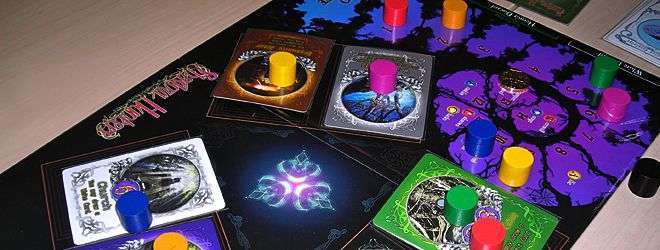
If you got half a movie or half an album, the world would be up in arms, because all you can do is sit and ‘experience’ those things. With videogames, you interact with them directly, so developers seem to think it’s acceptable to release something that isn’t finished. The same interaction, the same level of involvement is true of a board game. You couldn’t get away with the board being half complete in Shadow Hunters, with a quarter of the character cards missing in The Resistance, or with some of the equipment tokens missing from Eldritch Horror. You could still play those games despite those problems – but you don’t have to, because board game makers seem to understand the need to respect the customer.
“Hold on Chris, hold on, you saucy devil” I hear you cackle. “This is all well and good, but I don’t care for Snakes and Ladders, Monopoly or Scrabble. I want the variety of being a Space Marine hunting Orks, or an assassin tailing a target. I want to get involved in a forbidden romance in the desert or throw myself off a cliff and pull the parachute at the last second, whilst throwing fire from my hands.”
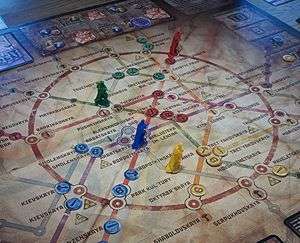 Well, you can. Tabletop games are honestly as varied, fun and enjoyable as videogames. Want to deceive your friends and work in secret as a team of spies in an anti-government resistance movement? Play The Resistance. Want to talk about how the next McDonalds Happy Meal toy is chunks of dead prostitute? Play Cards Against Humanity. Perhaps you want to use a chocolate bar to restore your health and then use a machine gun to mow down a Vampire? Play Shadow Hunters. Or instead choose to rule over all of Westeros and stab your friends in the back on the final turn? Play Game of Thrones. Or maybe you want to try and move the bomber into the same room as the President to win a game of Two Rooms and A Boom – a game that actually requires two rooms of your house as part of the process.
Well, you can. Tabletop games are honestly as varied, fun and enjoyable as videogames. Want to deceive your friends and work in secret as a team of spies in an anti-government resistance movement? Play The Resistance. Want to talk about how the next McDonalds Happy Meal toy is chunks of dead prostitute? Play Cards Against Humanity. Perhaps you want to use a chocolate bar to restore your health and then use a machine gun to mow down a Vampire? Play Shadow Hunters. Or instead choose to rule over all of Westeros and stab your friends in the back on the final turn? Play Game of Thrones. Or maybe you want to try and move the bomber into the same room as the President to win a game of Two Rooms and A Boom – a game that actually requires two rooms of your house as part of the process.
Everything I’ve touched on just there is just a tiny, tiny piece of this huge, delicious puzzle. Tabletop games are here to stay and I, for one, couldn’t be more excited. The sooner people start playing the better it will be, because not only will everyone be having more fun, and encouraging more games to be made, but perhaps the videogames industry will realise where it has started to go wrong, and make a course correction before all is lost.
Last five articles by Chris














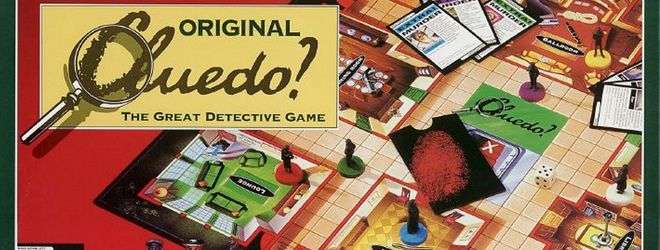
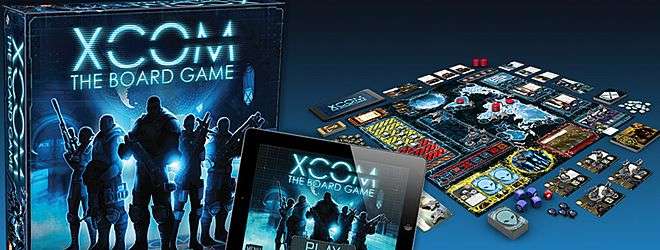





There are no comments, yet.
Why don’t you be the first? Come on, you know you want to!